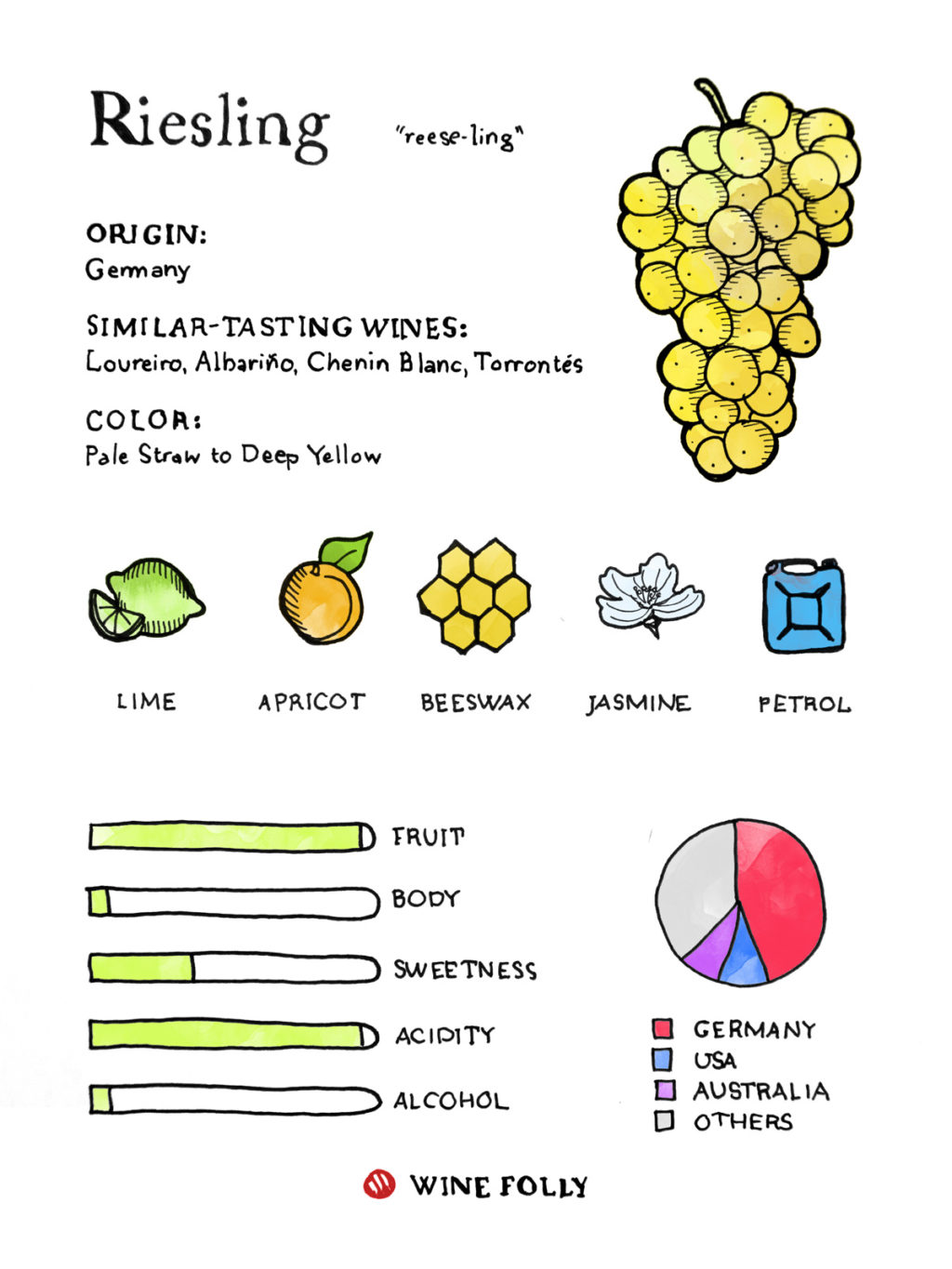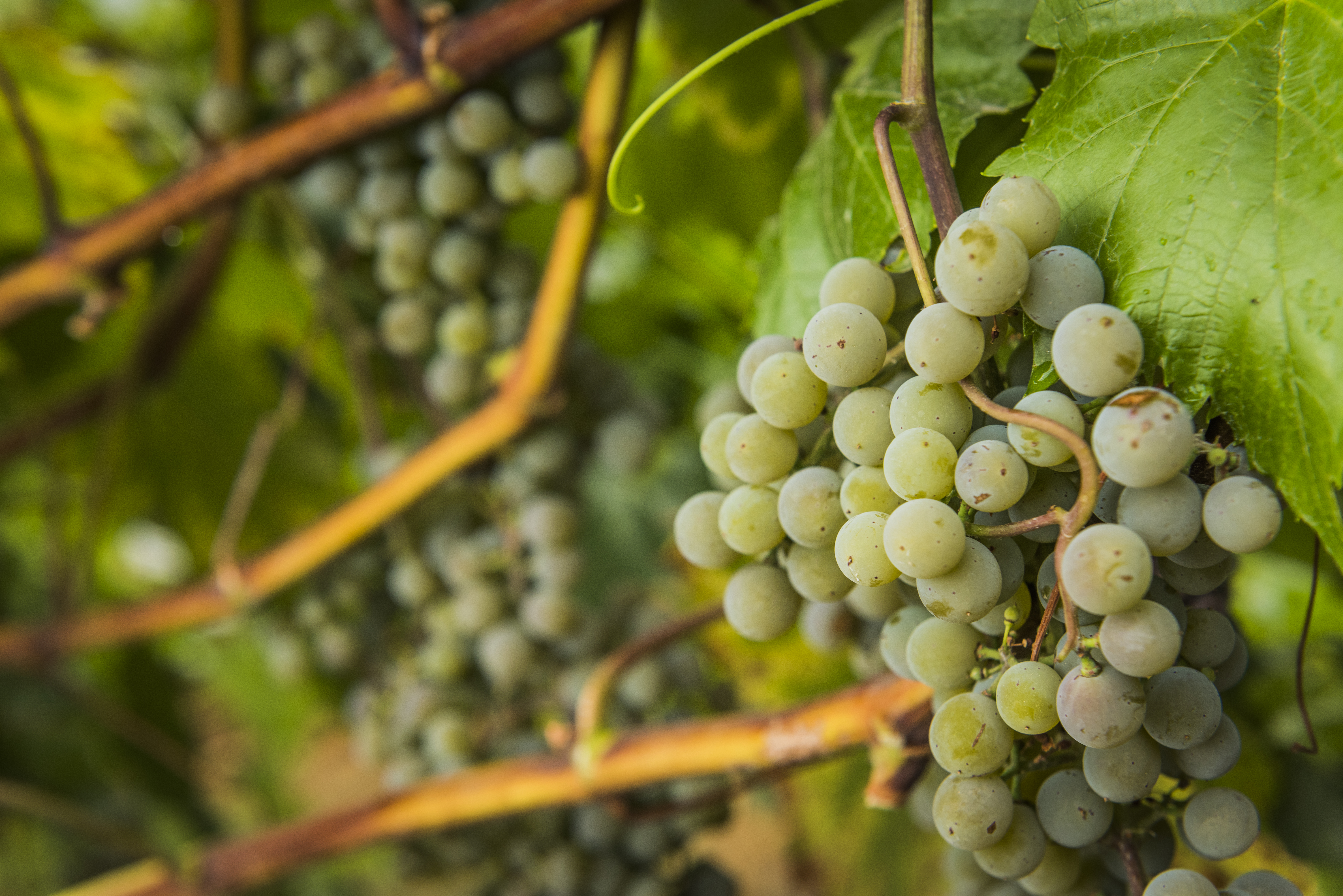Riesling is such a beautiful varietal to work with; It produces a wine that is aromatic and complex. A Riesling can be bone dry, high acid style or with a racy acidity that is balanced with residual sugar. Every winemaker artfully crafts a different expression of Riesling.
Riesling may have originated in Germany, but this cool climate grape loves British Columbia. In our opinion, this is largely due to large diurnal temperature shifts, mineral-rich soils, and overall cool climate.
There were 511 acres of Riesling planted in 2014 (the last survey) making up 10% of the white variety plantings and 5% of overall acreage. It has grown 116% from 236 acres in 2004, but is still only the fourth most planted white behind pinot gris, chardonnay and Gewurztraminer. – Rhys Pender MW (http://www.winealign.com/articles/2016/08/18/a-rendezvous-with-bc-riesling/)

Here in the Thompson Valley, we have quite large temperature shifts between the heat of the day and the cool of the night. Now, why do grapes thrive in this challenging environment? In grapes, this variation creates this beautiful balance of producing high acid and high sugar content during the day. Then as the night takes over, the drop in temperature preserves the natural acids in the grape. Thus, we can produce a Riesling that is crisp, refreshing and citrusy. You literally feel your mouth come alive. Our mouths water just thinking about Riesling.
Another fantastic element that has us loving BC Riesling is it age-worthy abilities. This is due to its high acidity and, in the case of sweeter styles, its sugar content. Both of these factors act as natural preservatives in the finished wine. Riesling is one of the rare white wines that can be cellared and aged. As it matures, riesling tends to become more complex. It can develop different layers of flavours and aromas such as notes of honey, beeswax, and orange marmalade. Wet stone, mineral, and even petrol (the British word for gasoline) are other common descriptors.

